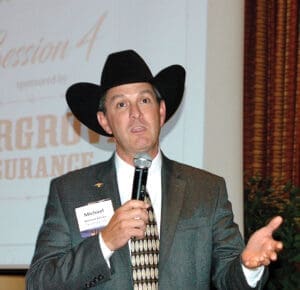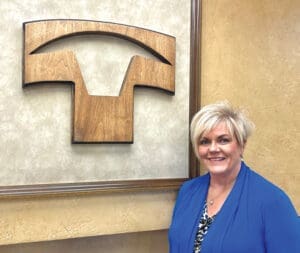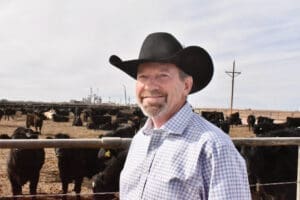By Larry Stalcup, Contributing Editor
Oklahoma Cattleman’s Association (OCA) CEO Michael Kelsey has been a cattle association executive for more than 27 years. Despite the drought that’s lingering in some parts of his state, he said he has rarely seen such promising business opportunities for producers eager to expand their herds.

Kelsey was among hundreds of OCA members and others who attended the OCA’s 72nd Annual Convention this summer in Norman. With a theme of “Building Our Beef Legacy,” the convention addressed ranch succession, generational transfer and other management topics.
Of course, successful ranches depend on growth. However, industry growth has been suppressed by little, if any, herd expansion in recent years. Among the reasons are drought and high costs of financing and inputs. Strong consumer demand is keeping beef prices high. But with high calf prices, producers are more prone to sell heifers rather than hold them for replacements. Still, Kelsey sees growth potential in Oklahoma.
“It’s hard to determine if the Oklahoma herd is growing,” he explained. “It doesn’t look and feel that way from total numbers. Some members are holding a few heifers back. Others, who downsized during the drought, are staying where they are.
“But if producers have grass, other forage and labor, they will hold back more heifers. I’ve been at this for 27 years and have never seen an environment like this. Beef demand is helping hold calf prices high. I think there is a lot of opportunity in the cattle business.”
Potential changes in the so-called Death Tax laws will weigh heavily on future cattle operations. Kelsey said OCA joins the National Cattlemen’s Beef Association (NCBA) in fighting for fair estate tax regulations that will not cripple future generations when ranch and farm succession takes place.
Animal Disease Traceability
The convention hit on cattle and disease traceability, lightning-rod subjects in producer meetings. Nearly everyone agrees traceability is needed, but for some, requiring producers to use electronic ear tags is a burr in the saddle. Kelsey said a resolution was even made that would oppose mandated animal ID.
“The resolution would have rescinded many transparency-related regulations,” he said. “The resolution was overwhelmingly voted down, but in all fairness, it still addressed some confusing issues that needed clarification.
“However, when it comes to animal disease traceability, we need to be at the table when decisions are made, or others outside the industry will make them for is.”
The convention report on the Beef Checkoff illustrated the continued benefits of the producer-driven beef promotion and research program. “The Oklahoma Beef Council does a great job in helping promote beef to consumers, dieticians and others outside the agricultural industry,” Kelsey said.
“Some producers indicate they don’t see what the checkoff is doing to help them. They may have a negative attitude about it. But as producers, we are not the targets of checkoff dollars. The message is aimed at consumers and others who want healthy and tasty sources of protein that are available from beef.”
The return on investment of checkoff dollars grows every year. “For every $1 spent by the checkoff, there’s nearly a $13.50 return to the industry,” Kelsey said. “That information should be spread to offset the negative message some producers are hearing.”
Kelsey mentioned a new issue that will likely gain more attention in the coming months. It’s the “Corporate Transparency Act” (CTA). The U.S. Department of Treasury states that CTA is designed to combat money laundering and other financial crimes. It would require a broad range of entities to disclose information about their owners and persons who exercise control to the Financial Crimes Enforcement Network within in the treasury department.
“The act came about to help better understand foreign business structures in the U.S.,” Kelsey said. “The CTA requirements can impact ranch operations. Entities that employ 20 people or fewer must file a CTA form with the treasury department.
“Whether you’re an LLC or partnership, producers need to understand the impact of CTA. They need to contact their CPA or attorney to determine if it applies to them.
“We don’t want foreign ownership of agricultural land, but we don’t want more burdensome documentation either.”
OCA has various regional gatherings scheduled throughout the Sooner State this fall and winter. For more on the gatherings and other Oklahoma Cattlemen’s Association events, visit okcattlemen.org.





